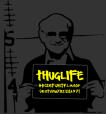one dice problems
We throw 3 dices one by one. What is the probability that we obtain 3 points in strictly increasing order?
Last edited by imnets on December 12th, 2005, 11:00 pm, edited 1 time in total.
-

- zarnywhoop
- Posts: 0
- Joined:
one dice problems
Prob. increasing order = Prob( all three are different ) * prob( in the right order ) = (5/6) * (4/6) * 1/(3!) = 5/54 = 0.0925925925...
one dice problems
Probability = (# of subsets with cardinality 3 of a set of 6 distinct objects, without regard to order)/(# same, with regard to order) = Binomial[6,3]/6^3 = 20/216 = 5/54 = 0.09259...For 0<= n <= 6 die,Probability = Binomial[6,n]/6^n.So 1 dice and 5 die give the same probability.
Last edited by INFIDEL on December 12th, 2005, 11:00 pm, edited 1 time in total.
-

- frankothug
- Posts: 0
- Joined:
one dice problems
Given a set of 3 distinct elements (p1,p2,p4) it is always possible find an unique order set (p1,p2,p4).thusprobability=Number of combinations of 6 distinct objets taken 3 at a time/6^3 =nCr(6,3)/6^3; =20/216 =5/54 =0.09259...
one dice problems
as all have said strictly increasing=> 6*5*4 = 120 casesand pick any case, and you have only one out of 3! chance that its in strictly increasing orderso probability = (120/3!)/6^3----------amit7ul
